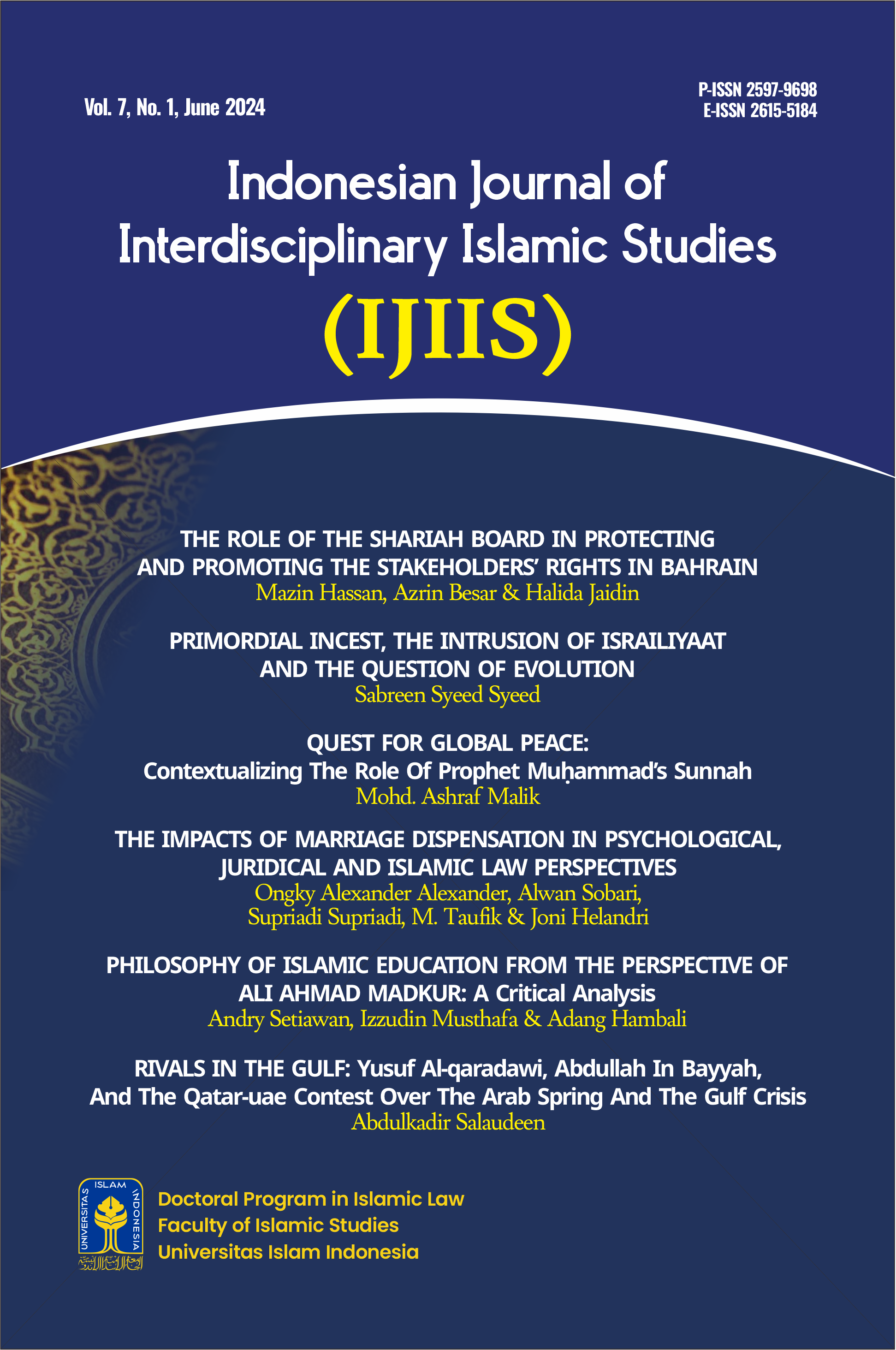Main Article Content
Abstract
Marriage dispensation is an exception made in emergency situations, and in Islam, it can be applied without violating the principles of Islamic law. It means it can be carried out as long as it complies with the legal requirements of the state and Islamic law, and there is evidence of permission from the Religious Court because of, for example, pregnancy out of wedlock. The purpose of this study is to examine the psychological and juridical implications of marriage dispensation. To help couples understand the purpose of marriage, they must be mentally and physically prepared. The results of this study indicate the impact of psychologically immature marriage dispensation on mindset and psychological immaturity. Therefore, if rules and evidence are not limited, it will lead to several problems such as increasing divorce rates, low economic conditions, vulnerability to domestic violence, and so on. Meanwhile, the juridical impact of Law No. 16 of 2019 indeed regulates marriage dispensation only in a normative sense. However, in practice, sociologically, there is room to facilitate marriage dispensation. Meanwhile Islamic law does not have specific provisions regulating marriage dispensation because most scholars only affirm that maturity (baligh) is a prerequisite for someone's marriage to be valid, without specifying a minimum age limit for marriage.
Keywords
Article Details
Copyright (c) 2024 Ongky Alexander Alexander, Alwan Sobari, Supriadi Supriadi, M. Taufik, Joni Helandri

This work is licensed under a Creative Commons Attribution-ShareAlike 4.0 International License.
